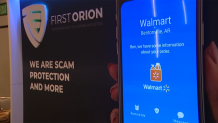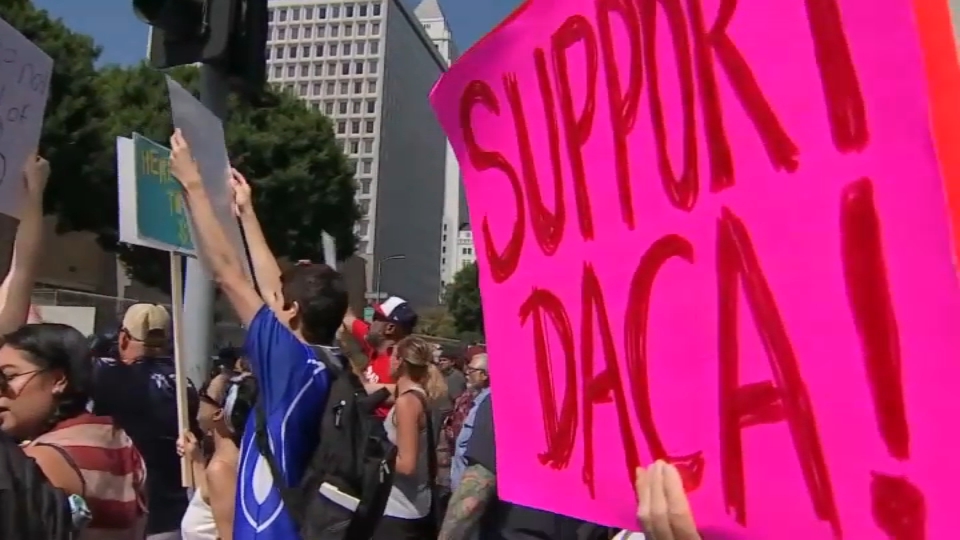Robocalls are annoying — and constant.
Irvine-based YouMail estimates U.S. phones received about 147 million robocalls every day last month. San Francisco Bay Area phones rang about 81 million times in December — with a robocaller on the other end.
Many of those automated phone calls are scams. Last month, we told you about Lisa Hardy in Oakland. Her father sent $8,000 to scam callers.
"They hit him at his most vulnerable," Hardy said.
We also introduced you to Max Atkinson in Santa Clara, who gave the bad guys $12,000 by phone.
"I fell for it, and regret it ever since," Atkinson said.
Calling on Congress
Local
Before we broadcast their stories, we shared them with Rep. Anna Eshoo, the Congressional representative for California's 18th District, which includes much of Silicon Valley. The longtime Democratic Congresswoman says she's not immune from the scourge of robocalls.
"I'm subjected to the harassment as well," she said. "This has now gotten to a point where the harassment is really having an impact on people's lives. I hear it wherever I go."
Rep. Eshoo sits on the House Communications and Technology Subcommittee. She says Washington needs to focus on our nation's outdated caller ID system.
We asked if, when her phone rings, whether she trusts the caller ID display.
"No, not anymore, I don't," she said. "Not unless there's a name on the screen that I recognize."
Caller ID is easily faked. Simple hacks let bad guys put whatever they want on your phone's display, to fool you. The U.S. Federal Communications Commission says it's working with phone companies on improvements we'll see this year. But, Rep. Eshoo says if the FCC's fix falls flat, she'll push Congress to step in.
We asked if Rep. Eshoo believes the American public deserves to trust caller ID.
"I think if we restore it to what it was, then they will trust it," she said. "This is something that people cannot do by themselves. That's the yardstick that I use to measure, 'Should the government be in this, or shouldn't it?'"
The Next Generation
The public likely won't see complex back-end technology improvements that the FCC wants. What we likely will see is a caller ID "makeover." During a recent trade show just outside the San Francisco International Airport, NBC Bay Area got an exclusive look at what form that new caller ID might take.
First Orion, an Arkansas security firm, is hard at work on that technology.

It's called "Call Enhancement". Here's how it works: using back-end technology in partnership with mobile phone service providers, government agencies, and businesses, incoming calls from legitimate callers will display the caller's name, an official logo, and a reason for the call. For example, a call from Walmart would show the familiar corporate image, and a brief message, such as: "We have some information about your order."
First Orion Chief Operations Officer Craig Dunn says the company's goal is caller ID that users can trust at a glance.
"There's a lot of security around how that image shows up," Dunn said.
Dunn said only official, legitimate, and verified parties get access, so you can once again trust your phone's display.

"Now, you can make a choice: is that a call I want to take, or not?" Dunn said.
First Orion says it's already working with several companies that might justifiably need to call you — banks, credit card issuers, airlines, retailers, and more. All this is being done ahead of the FCC's proposed fix.
"The scammers aren't waiting for legislation," Dunn said.
We wondered: will the bad guys just hack "call enhancement" the same way they've corrupted existing caller ID? First Orion's Dunn says there's no guarantee, but he estimates a one-in-a-billion chance that the message on a call enhancement screen would be bogus.
"Right now, we feel like we're ahead of the scammers," Dunn said. "We've stayed ahead of them."
First Orion says it's ramping up first with T-Mobile. Subscribers might soon see caller enhancement in place of caller ID for some calls.
Where's the New Standard?
Throughout the year in 2019, FCC Chairman Ajit Pai stated his goal for major U.S. wireless carriers to update caller ID to the new, more secure STIR/SHAKEN standard.
"I am optimistic that the major voice service providers will meet the end-of-2019 deadline for implementation I set for them," Pai said in July. "That said, we stand ready to take regulatory action if this deadline is not met."
It appears that action may be necessary. It's now 2020, and it remains unclear when the tougher caller ID standards will be in place.
NBC Bay Area asked the four major wireless carriers for an update on their implementation of new caller ID.
AT&T told us:
“We are implementing SHAKEN/STIR in our network and expect to meet our 2019 commitments. In 2020, we will make even more progress, alongside our industry partners, to enable this important new consumer tool. Chairman Pai also has highlighted the FCC's action this year [2019] to allow service providers to establish call-blocking services as a default setting for consumers. You can see our latest news on AT&T Call Protect here and here.”
Sprint, which is in the process of merging with T-Mobile, said:
"We are fully committed to deploying SHAKEN/STIR, and plan to implement and test cross-carrier interoperation this year. We believe deployment of these technologies will be an important step in Sprint and the industry’s continuing work to eradicate the plague of illegal and unwanted robocalls."
T-Mobile told us:
"T-Mobile has been leading on implementing the FCC recommended STIR/SHAKEN standards. We were first to announce readiness in November 2018 and first in the wireless industry to implement STIR/SHAKEN on our own network in January 2019. T-Mobile was also first to implement cross-networks caller verification for customers with Comcast Xfinity Voice and then AT&T Wireless customers. T-Mobile customers with a compatible device get a notification in their Caller ID that a call is verified and are experiencing that benefit today at T-Mobile."
Verizon told us:
"We have committed to and support the new “STIR/SHAKEN” call authentication technology in order to confirm for our customers whether an incoming call is spoofed. We also support legislation requiring service providers to deploy the STIR/SHAKEN call authentication technology."
Verizon also offered this link to its consumer tips for avoiding robocalls.



